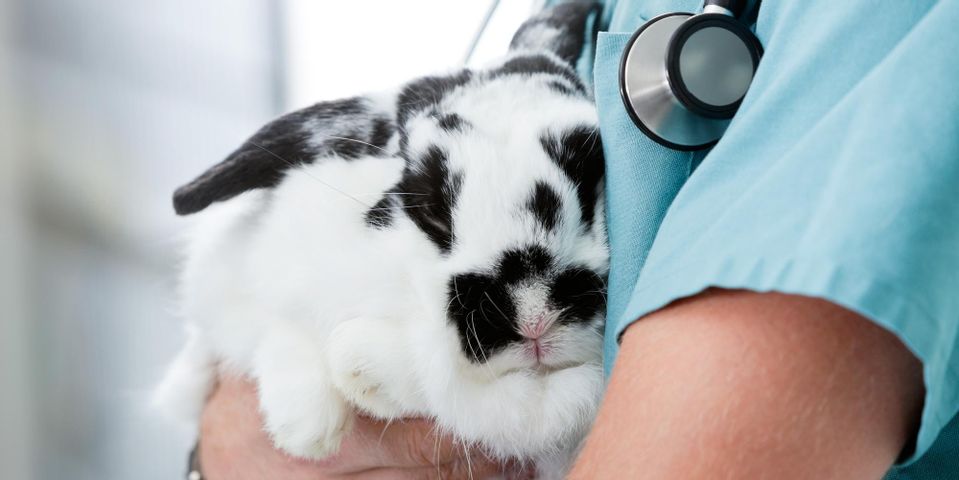5 Care Tips to Keep Your Pet Rabbit Healthy

Domestic rabbits come in a range of sizes and fur colors, with some featuring long fur and others showing off those famously floppy ears. And while your rabbit veterinarian may recommend specific instructions based on the breed, there are a number of general care tips that apply to any of these furry friends. Here’s what you should keep in mind.
5 Domestic Rabbit Care Tips
1. Use a Large Cage
Select a cage that is at least five times the size of your rabbit and provides plenty of space to run, play, sleep, stretch, and eat. Put down a piece of linoleum or a seagrass mat if you’re using a wire cage so the wires don’t press into the rabbit’s paws and create sores. You may want to invest in a two-story rabbit condo that provides plenty of room to move and even includes a litter box space, as it’s possible to litter train a rabbit.
2. Provide a Well-Balanced Diet
Ensure your rabbit always has plenty of hay to eat as well as vegetables such as kale, dandelion greens, and other dark, leafy greens. Also provide a water bottle filled with fresh, clean water every day. Avoid giving your rabbit pellets and providing the animal with too much fruit, as both can cause gastrointestinal problems. Pellets also promote obesity. Other foods that can cause adverse reactions in rabbits include chocolate, potatoes, beets, corn, onions, seeds, and grains.
3. Ensure Your Bunny Gets Exercise
 Exercise your rabbit on a daily basis by giving it space to run, such as in your backyard if it’s a closed-off space. You can also create a “rabbit-safe” room in your home — one that is free of exposed electrical outlets, toxic household cleaners, or harmful plants that your bunny could chew on.
Exercise your rabbit on a daily basis by giving it space to run, such as in your backyard if it’s a closed-off space. You can also create a “rabbit-safe” room in your home — one that is free of exposed electrical outlets, toxic household cleaners, or harmful plants that your bunny could chew on.
4. Offer Chewing Materials
Prevent your bunny from gnawing on things it shouldn’t by providing chewing materials such as untreated cardboard. Rabbits have to gnaw to keep their teeth from growing too long. Cardboard and non-toxic wooden and plastic toys also provide stimulation so your bunny doesn’t get bored.
5. Schedule Routine Vet Care
Create a regular appointment schedule with your rabbit veterinarian based on the animal’s breed and overall health. A rabbit veterinarian is specialized in their field, ensuring they will be able to provide proper diagnoses and treatments for your pet’s unique needs. Always take your bunny to the veterinarian if you spot any abnormal symptoms, such as an increase or decrease in appetite, drooling, fur loss, lethargy, enlarged abdomen, and changes in the animal’s stool.
If you live in the Fairport, NY, area and need a reliable rabbit veterinarian, take your fuzzy family member to Fairport Animal Hospital. Rabbits are among the exotic pets this animal hospital treats, ensuring you can get specialized, state-of-the-art care for your furry friend. Their team of veterinarians also provides plenty of tips so you can provide your pet with the best care at home. Call (585) 388-1070 today to schedule an appointment or learn more about their rabbit veterinarian services online. For more tips or updates on the animal hospital, like them on Facebook.
About the Business
Have a question? Ask the experts!
Send your question

